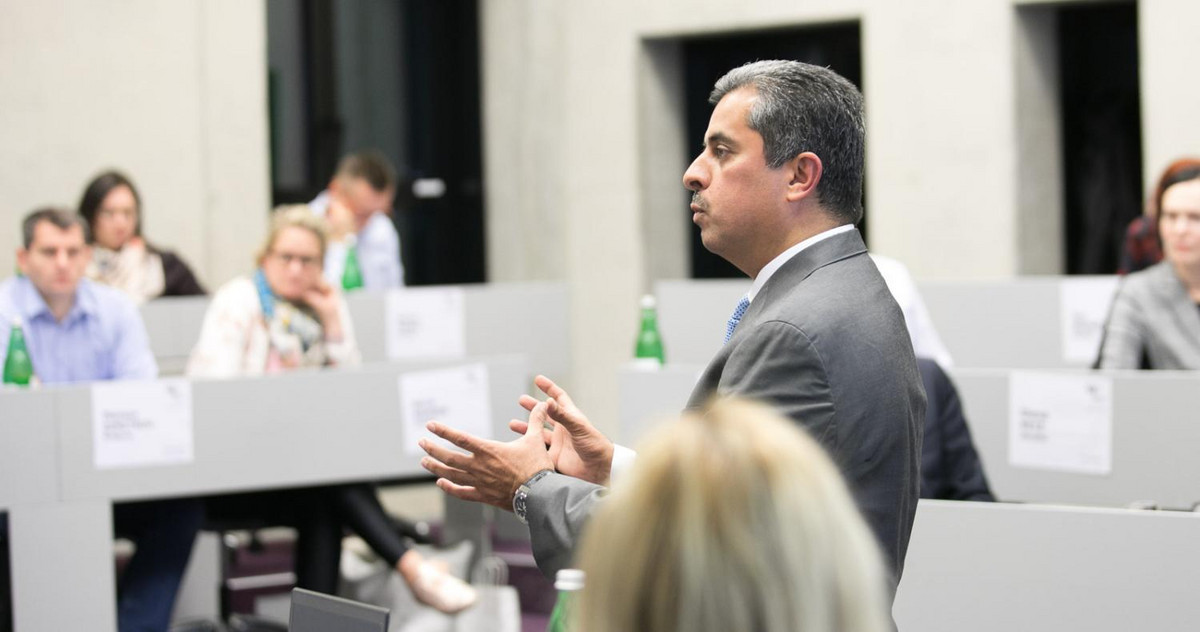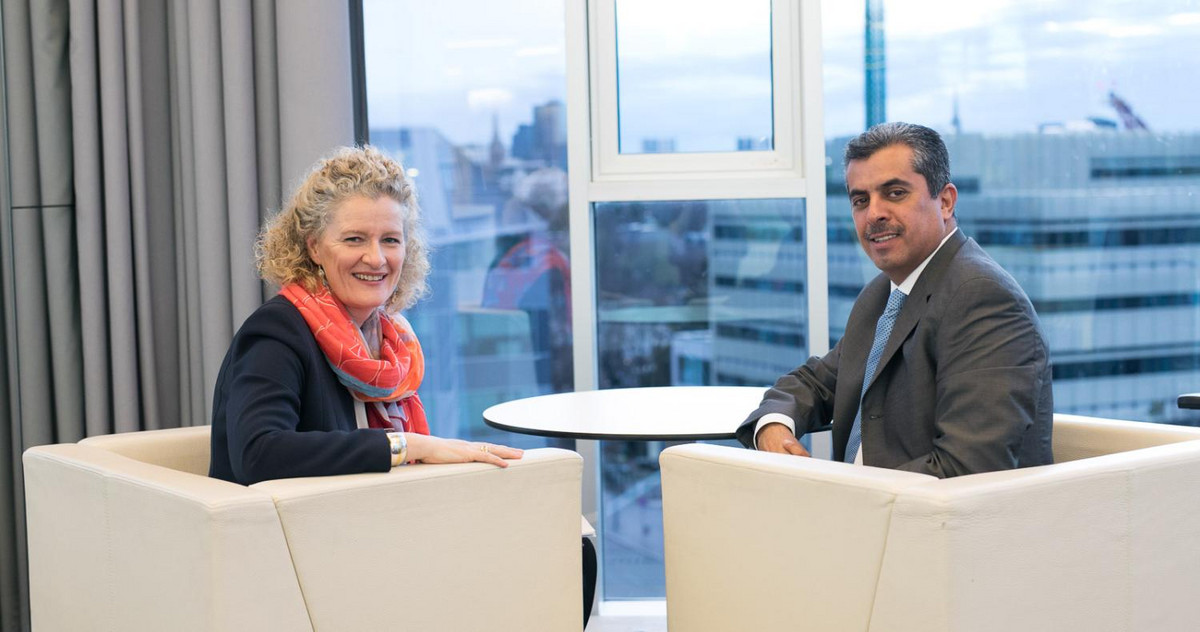Overview
Recommendations
Next Steps
Social media
The Oracle perspective
Last week, the students of the Global Executive MBA welcomed a very special guest speaker: Abdul Rahman Al Thehaiban, Senior VP Technology at Oracle, shared his insights on the power of failure, digitization challenges in the IT industry and the importance of constant innovation and revealed his personal success formula.

Mr. Al Thehaiban, what were your biggest failures/challenges from which you learnt the most?
My life started with failures: At school, I did not know what I really wanted to do, so I chose arts, which I did not have a particular passion for. Then I switched to English Literature, same thing. Because I was not satisfied with my situation, I thought I had to do something, so I spoke to my oldest brother for advice. He suggested the army college. And this was exactly what I did: I started the national security college and managed the entry exam, but failed in the physical test. So I went on to the aviation college – managed to get in and then decided that I did not want to follow that option either.
My family has been running their own business for many year. So for me, it would have been easy to start into some management position. However, that was not my goal. I wanted to become more visible by myself. I decided to study business abroad, in the UK, where I finished my studies in computer sciences.
Actually, the next failure was the company I had started – a software house, although I had no idea how to run such an enterprise. 6 years later I sold it.
My story with Oracle began when the company decided to start its business in Saudi Arabia, and I joined. At that time, the country manager and 90% of the other management executives were expats. So in my first job interview, I said to my boss that I wanted to become a country manager. My boss liked the idea and so I became country manager. After a few years with Oracle, I earned my spurs and was promoted Managing Director in Saudi-Arabia. This was an amazing move, because before that the top executives would come from outside (like Lebanon or Jordan). I decided to reduce the number of expats and replaced them by locals.

What are your personal recipes for management success?
In those countries that I am in charge of I installed local general managers: They know the local business customs, the networks and the dynamics of the market much better, which makes it easier to do business in the region.
Personally, I tend to adapt easily to different cultures. I knew from the start that it would not be easy with a cultural background like mine (the Middle East culture is very special and complex), and you are confronted with a lot of prejudices, so I had to go the extra mile in building my mindset and being transparent. And you definitely have to do your homework when it comes to understanding the importance of local knowledge.
When it comes to leading my employees, I follow a basic principle: Give them a lot of freedom. Otherwise, one would not succeed in managing Africa, CEE and ME. You need to have people you can trust.
You have been an innovator in your field from the very beginning. Why?
That’s true. In 2003, when I took over my sales responsibility, I was the first one to hire female sales representatives. This was of course a challenge for various reasons, including very profane ones: In our office building, there was simply no ladies restroom. My initiative to change that – and I am not only talking about installing ladies restrooms in office buildings, but increase the number of female executives in management positions - received a government recognition award.
Today, 35% of the management positions in Saudi Arabia (not the office workers, however) are held by females, in Turkey this number is 80%.
What is your personal success formula?
Have passion for what you do. In this regard, I learnt a lot from my father.
Be self-confident: This does not mean showing-off, but knowing what you can do and what you cannot.
Have your goals, but do not pursue them but at the expenses of others.
Be true to yourself – and, of course, a little luck always helps
Leave your comfort zone and always try out new things
In your opinion, what are the reasons for failure? Where have you seen managers fail?
People usually fail when they have too much self-confidence. My father always used to say: You have two ears and one mouth – for a good reason; you need to listen more and talk less. People who are overconfident usually do not follow this rule, as they seem to know it all.
Talking about business: How do you see the digital transformation and its impact on the economy?
According to some recently conducted surveys, more than 65% of all the job profiles in the IT sector in 2025 are not known today. But the IT world has always been a very dynamic one. In the past, we had databases and software to manage them, there was not a jobprofile like a database administrator. So what we see is that IT impacts our lives – it makes it easier! We can do our jobs from home, shop online, etc.
The only constant in the future is change. Think about companies like Uber or Amazon – the world’s largest taxi company and one of the largest retailers do not own a single asset. This is what I call digital disruption. AI, by the way, will change our future significantly more than what we have ever seen before. The “point of no return” has already been reached, using AI or not is lo longer an option; it is a paradigm shift and governments have to take their role seriously.
Here are some impressions of the insightful lecture: